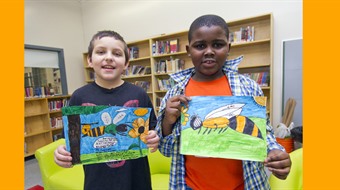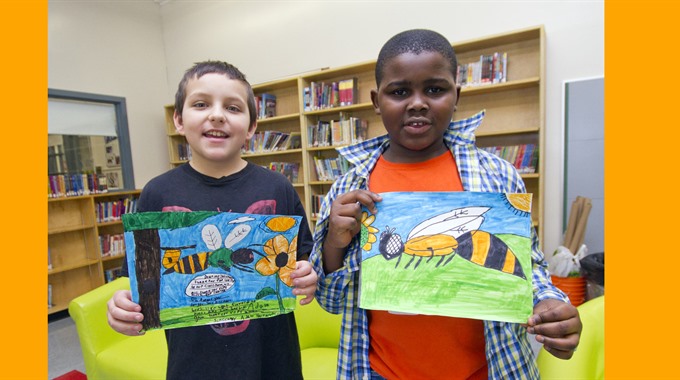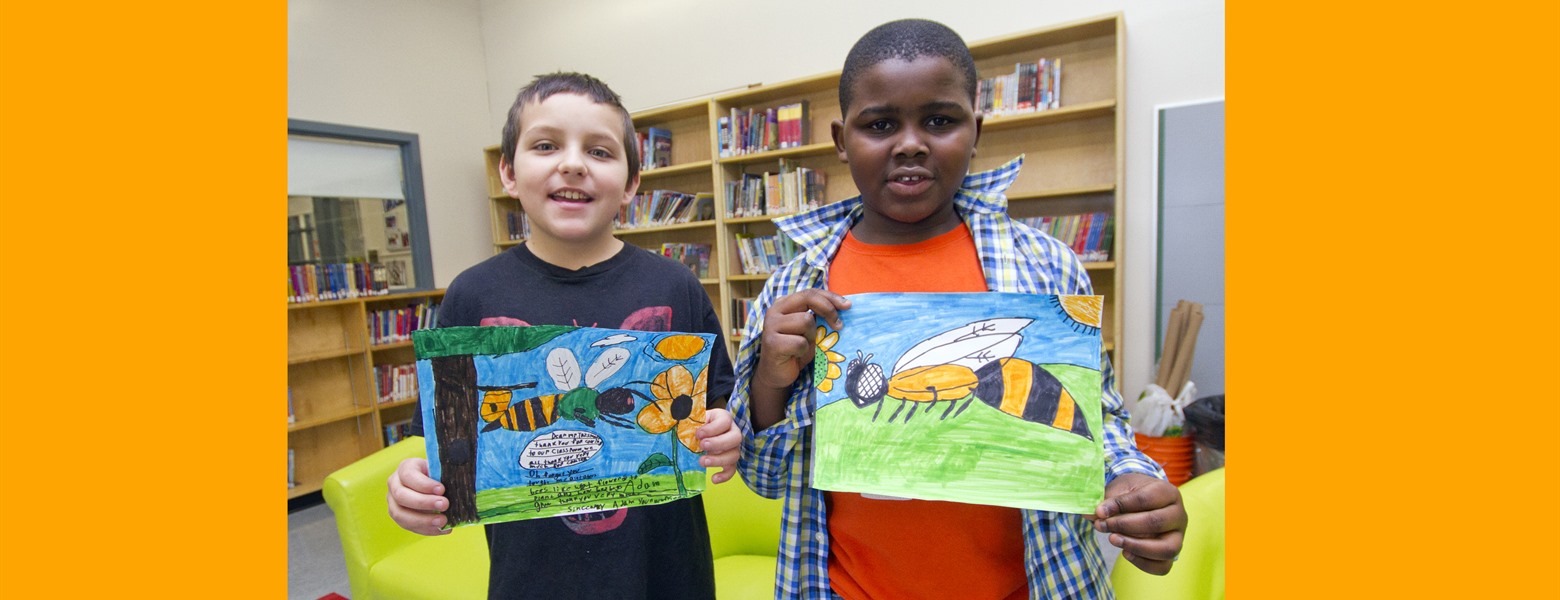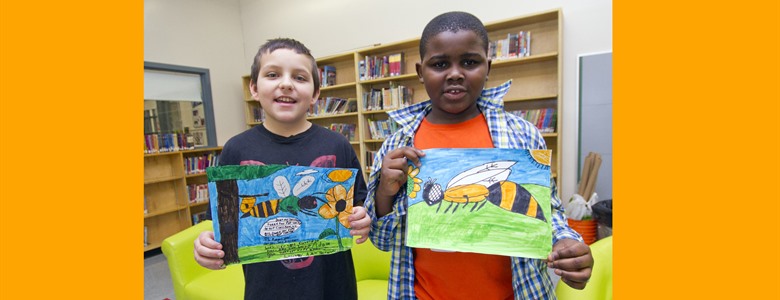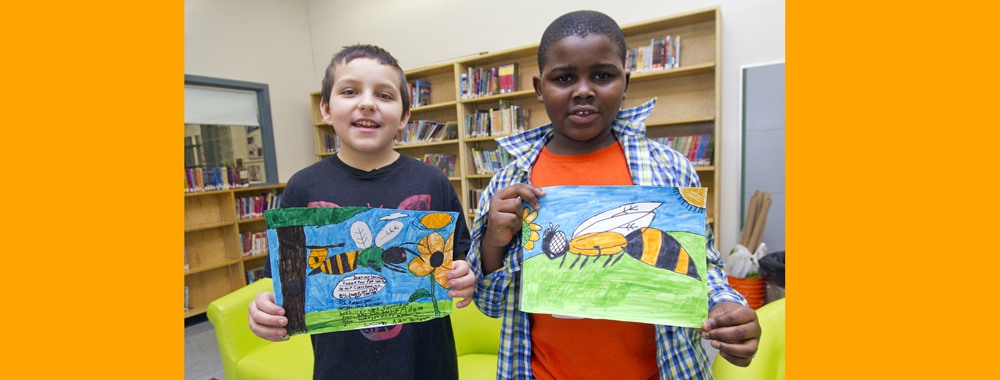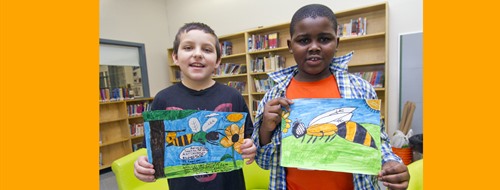Behind the bees
February 8, 2021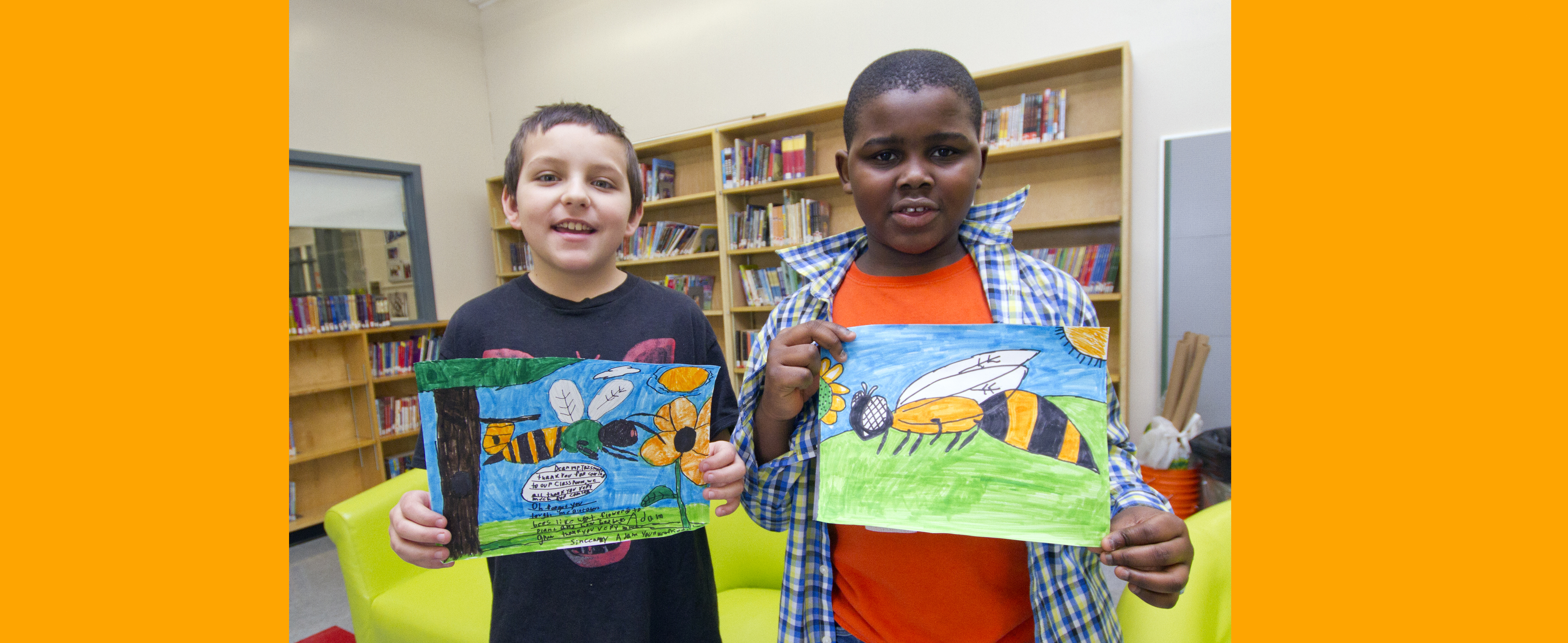
Carpathia School students and staff are hoping to make this upcoming spring and summer "bee season."
During a school-wide inquiry project, students learned that the bee is responsible for pollinating roughly 30 per cent of the world's crops. But honeybee populations face many challenges. Colony collapse disorder is causing bees to abandon their hives in vast numbers. And monocultural practices—using bees to pollinate one specific crop rather than a diversity of pollen sources—has impacted the health of colonies and made bees vulnerable to adverse conditions. Pesticides meant to reduce other insects can also contaminate and impact bees. Natural enemies such as the parasitic varroa mite have also been devastating to honeybee colonies.
The idea for a honeybee project came at the suggestion of educator Sandra Figueroa, who spent a week working with Carpathia students and teachers in January as part of a Regie Routman Residency.
"We have been researching, reading and learning about bees from Nursery all the way up to Grade 6," said Principal Gordon Armstrong. "Every class has been learning about the life cycles, the different parts and the different roles of bees. It's been some of the best learning we've seen at Carpathia."
Students read books, online materials and watched educational videos (including some of the Ted Talks series) to learn more about bees; that led to a wide variety of writing, science, art and other projects to demonstrate student learning.
"Once students got the materials in their hands and started learning, it was amazing the conversations we had in the classrooms and the hallways," Mr. Armstrong said. "Parents have also been noticing rich discussions and vocabulary from students when they're passing along facts about honeybees."
Teacher Michael Conklin invited Winnipeg's "rockstar entomologist" Taz Stuart to come to his Grade 4/5 classroom to discuss honeybees and other insects with his students.
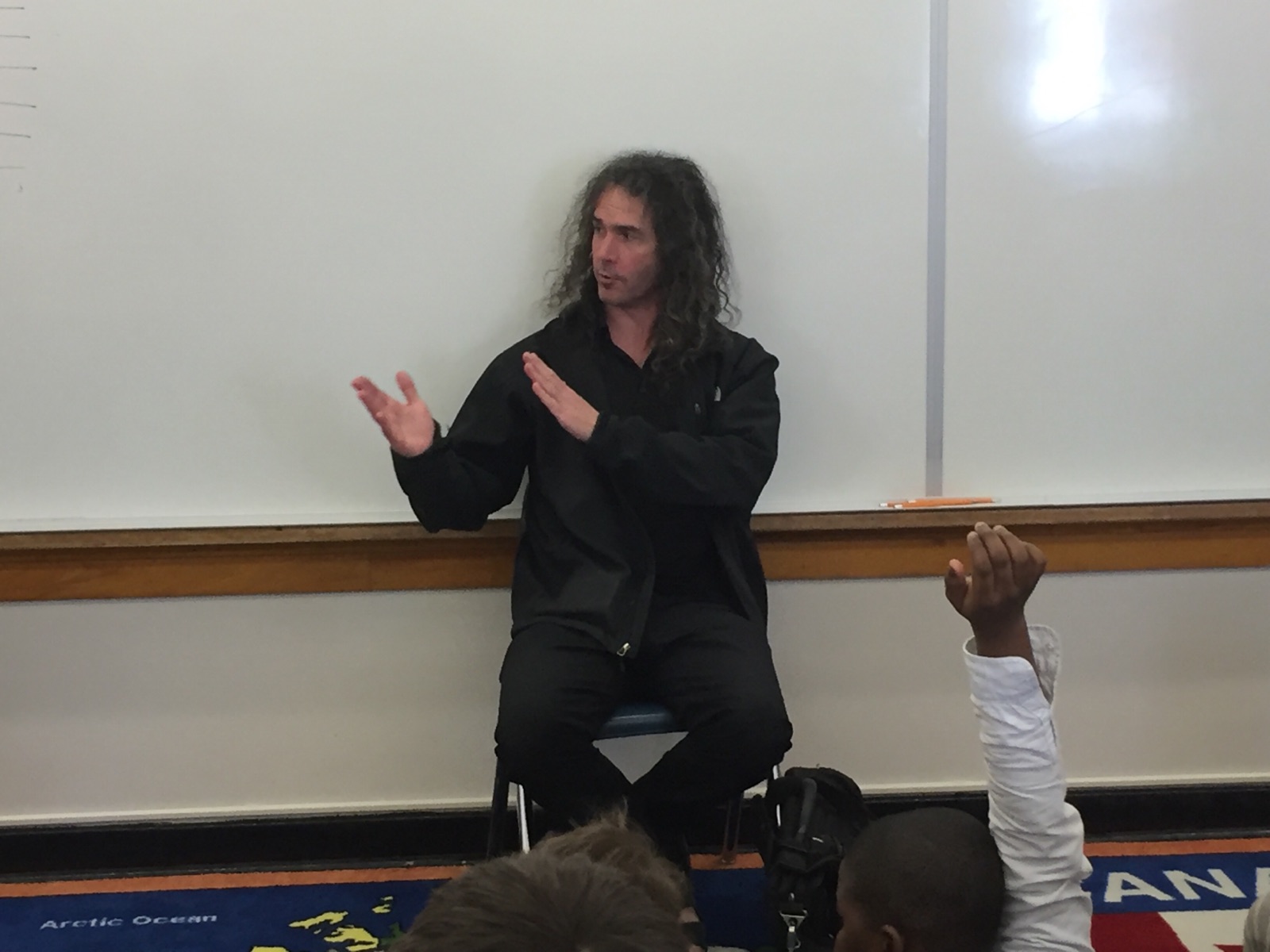
Mr. Stuart said one of the ways students could help honeybees was to plant a diverse variety of flowers for bees to pollinate. Students are currently researching which flowers would be most beneficial and provide the most nutrients to bees for a possible springtime project.
He also said students could write letters to pesticide companies to encourage industry led solutions.
"The whole school was researching and writing letters to important people about the disappearing honeybees," Mr. Conklin said. "The quality of writing from Nursery to Grade 6 was incredible. This was a huge topic that affects so many people. The students quickly understood the magnitude of this and were excited to learn as much as they could."
Students are also spreading the word about the honeybee through posters and other projects. They said the complex insects are a valuable part of our world.
"They're a community too," said Grade 4 student Milca Bukasa. "They even have different jobs over their lifetime in the colony."
"If we didn't have bees we wouldn't have as much food, like lots of fruits and vegetables," said Grade 5 student Teigen Baumgart.

